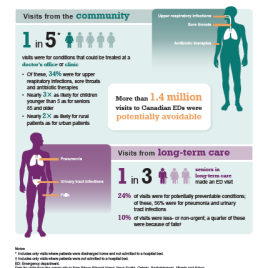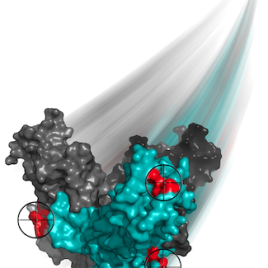Researchers have determined which genetic variations influence the iron and zinc concentrations in chickpea seeds, a finding that could help fight malnutrition in developing countries. The study examined 94 varieties of chickpea and found eight genetic variations – known as single nucleotide polymorphisms, or SNPs – that are associated with the iron and zinc concentration. Breeding […]
Tag: public health
Treatment for Type 1 diabetes shown to work on human pancreas cells transplanted into mice
An amino acid produced by pancreas was shown to prevent and even reverse Type 1 diabetes in mice injected with human pancreatic cells, a new study shows. Type 1 diabetes is a disease that cause the immune system to destroy insulin-producing cells, called Beta cells. Researchers had already shown back in 2011 that the amino […]
Only half of patients take their medications as prescribed
A new comprehensive review shows that only about half of all patients who are prescribed medication actually take their medication as prescribed. Interventions such as support from family members or pharmacists, education and text messaging were not found to improve the situation in a reliable manner. The authors are now encouraging collaboration between researchers so […]
Silver nanoparticles could upset gut bacteria
Silver nanoparticles that leak from water filters could alter the community of bacteria in the human gut, according to a new study. Silver nanoparticles are meant to kill harmful bacteria in portable water filters, but if they leak into drinking water they could also kill beneficial bacteria in our digestive systems. A simulated gut bacterial […]
Self-harm on the rise among girls in Canada
New statistics about hospitalizations due to intentional injuries in children and youth aged 10 to 17 – including both assault and self-harm – show that self-inflicted injuries have risen significantly in the last five years, especially among girls: Over the past 5 years, the rate of intentional self-harm–related hospitalizations in girls has increased by more than […]
How ZMapp fights Ebola
A new study highlights the biochemical mechanisms behind ZMapp, a promising experimental treatment against Ebola virus infection developed with the involvement of the Public Health Agency of Canada. Using single-particle electron microscopy, researchers determined the structures of each monoclonal antibody in the Zmapp cocktail and how each one binds to vulnerable sites on the Ebola […]
Kissing transfers 80 million bacteria
A new study shows that a kiss lasting only ten seconds can transfer an average of 80 million bacteria between partners. That may sound like a lot, but the study goes on to show that a single kiss doesn’t noticeably change the similarity of the bacterial community in the mouths of two partners. However, repeated kisses […]
Healthy baby birth weight depends on mother’s birth country
Babies born in Canada from immigrant mothers, especially from East and South Asian mothers, are often of lower weight than babies from Canadian’s mothers, but it’s not worrisome a new study shows. It’s usually thought that smaller infants are more likely to die or suffer adverse events than heavier infants. Research now shows that clinicians […]

To visit ED, or not to visit ED?
One in five patients who are discharged from hospital emergency departments (ED) without being admitted could just as easily have gotten the treatment they need at a family practice, according to a new report. Data compiled by the Canadian Institute for Health Information (CIHI) helps determine which emergency room visits are avoidable and could help […]
Why anesthesia may cause memory problems
After surgery using a general anesthetic, up to a third of patients experience memory problems for months afterward and a new study helps explain why. Many anesthetics work by binding to specific receptors (GABA A receptors) in the brain and increasing the function of these receptors, leading to drowsiness and memory loss. The new study shows […]

Ebola: how ZMAb, and ZMapp, works
Researchers at the Public Health Agency of Canada have studied how the experimental Ebola-treating antibody cocktail ZMAb – a major constituent of the drug ZMApp – fights the virus. They report that the drug binds to the proteins on the surface of the virus and neutralises its activity. The researchers say the findings may help […]
How to prevent a world without antibiotics
A new mathematical model suggests that in addition to looking for new drugs, we should also be using strategies to prolong the life of old ones. Most drugs only work for a certain period of time until organisms develop resistance. This lifetime can be prolonged by using antibiotics sparingly or combining them into ‘drug cocktails’ […]

Micro-scallop robot could swim in human blood
Researchers have created an artificial micro-swimmer which could swim through viscous fluids such as saliva and blood by opening and closing its shells at different rates. The robot consists of two silicone polymer shells, each only 300 micrometres in size, connected by a single hinge. An external magnetic field is used to drive the movement […]
What exactly is an unusual sexual fantasy?
A new paper makes one of the first attempts to determine which types of sexual fantasies are rare, unusual, common, or typical from a statistical point of view. The authors used an internet survey with 1,516 adults from Quebec who ranked 55 sexual fantasies and wrote their own favourite. The survey indicated that men have […]
Alternative hospital funding can be risky
A review of worldwide experience with an alternative model of hospital funding suggests that it increases the number of patients needing post-acute care. Activity-based funding (ABF) is a system whereby hospitals are paid a set rate for each episode of care, intended to fund the bundle of services provided to patients with particular diagnoses, as […]
Controlling Ebola outbreak in West Africa most effective way to decrease international
Controlling the Ebola virus outbreak at the source in West Africa is the most effective way to decrease international risk of transmission, a new study of global airline travel patterns shows. The authors used a model that predicts that three people infected with Ebola are predicted to fly from West Africa (Guinea, Liberia, and Sierra […]